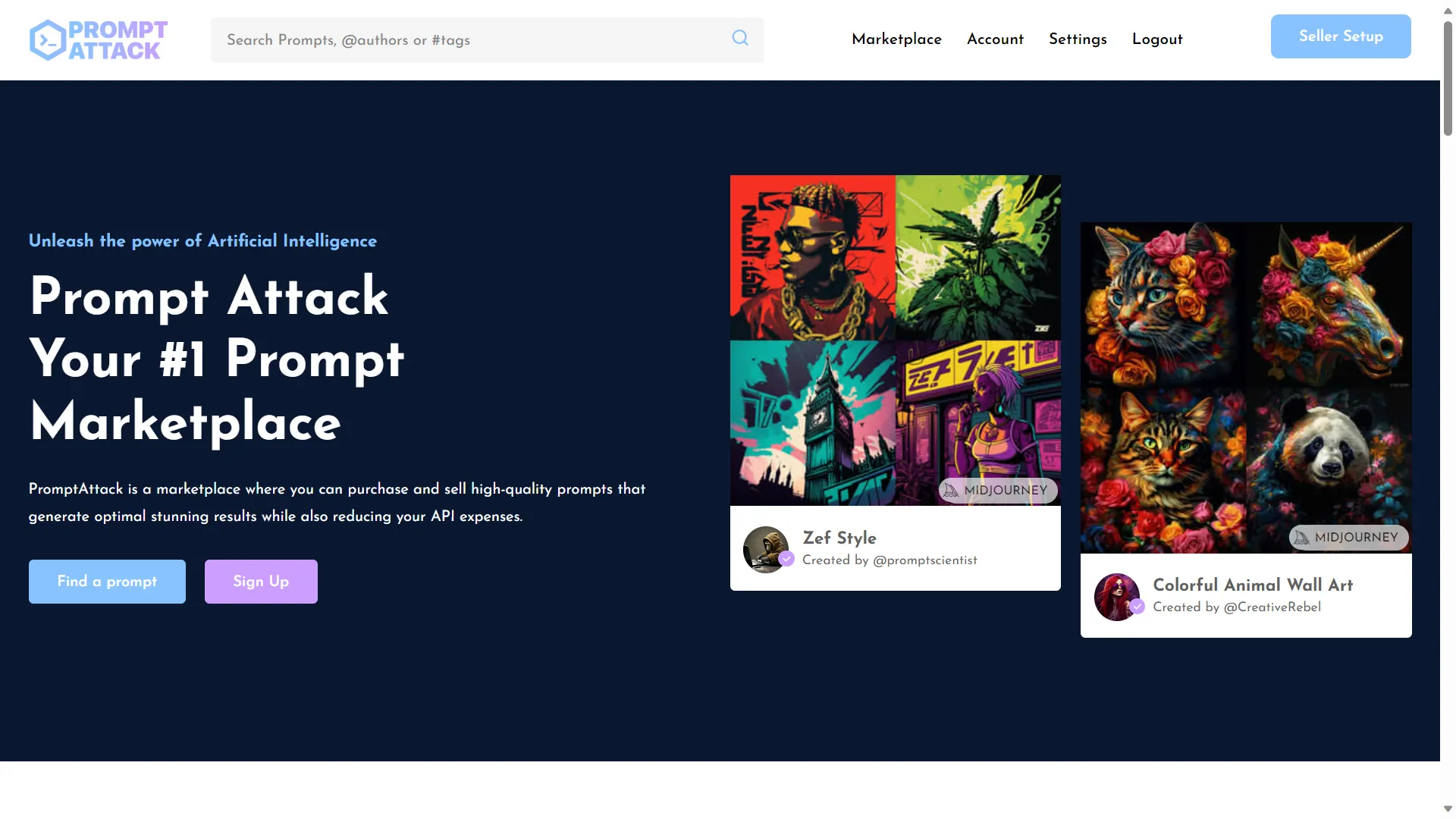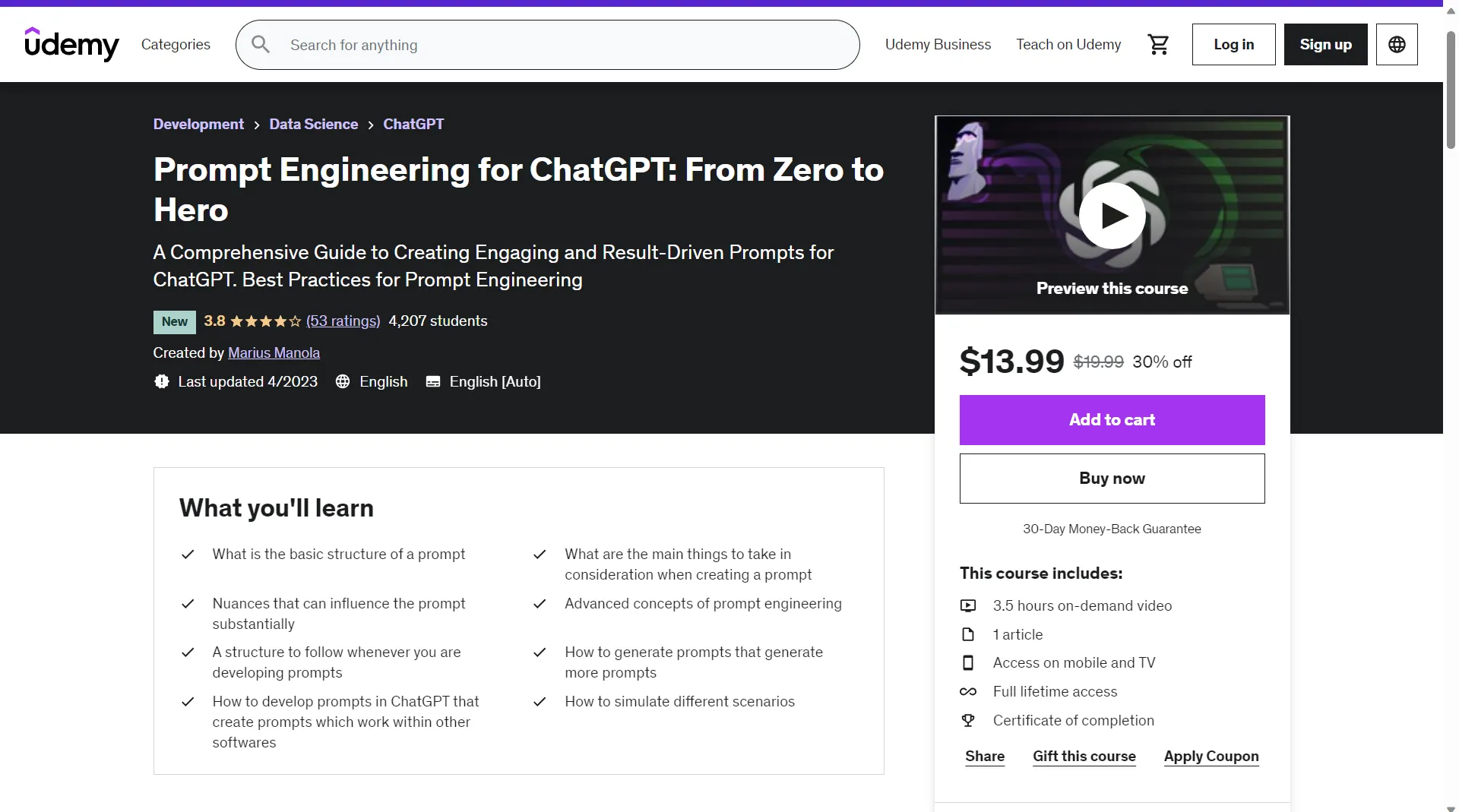Here’s an interesting new business that the AI gold rush has created: “prompt” selling.
Prompt selling? Yup. Businesses are springing up that help users figure out the best queries they can pose to ChatGPT and its rapidly expanding family of AI cousins to yield the best results.
"There are people on their way to making $100,000 this year from selling prompts," Mark (he wouldn’t give his last name), a technical writer and YouTuber, told Decrypt. He said he’s been tinkering with AI for two and a half years and now sells personalized prompts on Fiverr starting at $100 each.

Prompt Attack is one of a number of sites that offers a range of pre-packaged prompts for users of ChatGPT and image generators such as MidJourney and Stable Diffusion. It’s sort of like an Amazon for AI prompts with prompt products. People pay for all kinds of prompts. Are you going through a creative block? @sicshops sells prompts to generate song drafts with ChatGPT. Are you a graphic designer looking for inspiration? @ki-pfadfinder has some prompts to create all the vector logos you want using MidJourney. Is your community manager failing to generate engaging content on Linkedin? @jess has got your back.
The appeal is that for technical or extremely specific queries, users don’t need to scour the internet for free prompts or spend hours brainstorming their own. In a sense, it's like buying a ready-made meal at the grocery store: convenient, time-saving, and requiring minimal effort.
But why though?
So why would anyone spend $100 for a better prompt? Why would anyone spend anything when ChatGPT Plus, OpenAI’s GPT4-powered version of ChatGPT, only costs $20 a month for 25 prompts every three hours?
It turns out that writing a prompt for graphics design, in which the artist is looking for a very specific type of image, is one area that requires a lot of technical knowledge that many graphic artists don't have.
Once trained, an AI requires a few things to work: a prompt, a seed—which is a random number that determines the initial conditions used by the model to achieve its results—and some technical processing parameters (temperature, classifier guidance, sampler, processing steps, etc).
The prompt is how humans communicate with machines, telling the model what to conjure up. The way in which the words are selected and distributed, the elaboration of the idea, and other parameters weigh heavily when determining a result. It is not the same for a machine to be told to paint a landscape with a beautiful woman as it is to be told to paint a beautiful woman in a landscape.
For instance, consider the following results:

The prompt for the picture on the left is: “photo of beautiful woman, steampunk, digital painting, by greg rutkowski, 8k (film grain), ISO, color photograph, ginger long flipping hair, realistic skin texture, detailed face, freckles, ((full body)), wearing gloves high heels and open fur coat, winter, covered in snow, bokeh, winter, snowfall, frozen, dramatic sunset, crowded street, traffic, pedestrians, crossroads”—including a pretty long negative prompt.
The prompt for the picture on the right is: "photo of a beautiful woman posing in a street during the winter night."
So, it's not crazy that those who spend time doing some digital alchemy to find an award-winning prompt might also be interested in monetizing their efforts. "Good prompts can sometimes (lead to) more creative or better results," K, the pseudonym behind the YouTube channel Aitrepreneur, told Decrypt. "Moreover, when people are short on time, they might just want to buy prompts instead of searching the net or making their own.”
Anyone can paint, but few can create a masterpiece. Similarly, many can ask ChatGPT or Stable Diffusion to do something, but few can achieve the results they imagine—and that's when prompt engineers enter the scene. "I know people who have spent thousands of hours using ChatGPT over the last five months. The average casual user can't begin to do the things those people are doing," Mark said.
Yet, this phenomenon doesn't stop at simple prompt marketplaces. The entrepreneurial spirit has driven some individuals to offer full-fledged courses and workshops on crafting effective AI prompts. These savvy sellers are tapping into the desire for expertise, offering paid courses to help users make the most of their AI experience. It's no longer just about providing the prompts but about teaching users the art of creating them.

The Future of Prompt Marketing
Mark said he envisions a future with “prompt engineers for every field.” As a job, prompt engineering requires a specific set of skills, “there are many levels to it,” he said.
But K, of AItrepreneur, isn’t so sure that the pay-for-prompts business is sustainable: “As people become more familiar with AI tools, they'll likely learn how to create effective prompts on their own.” In fact, one of the cool things ChatGPT can do is help you craft your own query. If you’re ever stumped, try it.

